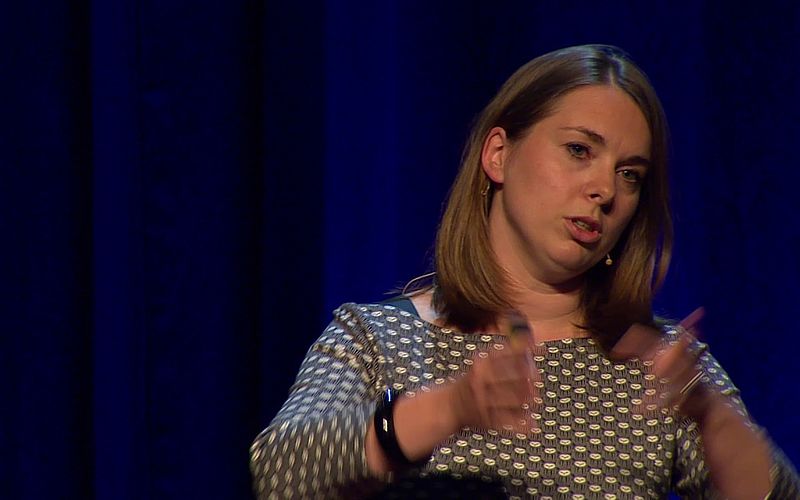Loes Keijsers makes the audience feel like a real teenager by one simple exercise. Breathe in through your nose and sigh out. Click your tongue, roll your eyes and say ‘Who Cares’. “Wow, a room full of teenagers.”
Loes tells us that most parents don’t find the terrible two’s the most difficult time in parenting, but the terrible teens. Parenting is a hard job. So you expect teenagers to really grateful for everything their parents do for them. “Thanks mom, I’m really grateful I have to be home at 10 ‘o'clock, because I know it’s in my best interest.” Instead, as a token of appreciation they roll their eyes at you.
Some statistics show that teenagers who rate their parents as loving and caring, are less depressed. But this doesn’t mean love and care is the best way to go for every teen. Hundreds of studies have been done since the sixties. And al these studies have formed patterns.
“But how can I give parenting advice? When advice is not applicable for every situation. So what should parents do? This is the most important question, but it is one I can’t answer.” However, there is a tool powerful we could use, and every child has one. Their smartphone! On 8 random moments the app asks the teenager a short question. This way, I as a researcher, can take part in the life of teenagers.
Every child is unique and responds different to forms of parenting. One size doesn’t fit all.
Personalizing parenting advice, will help parents in their most difficult but most important time to help their children develop into healthy and happy adults.



